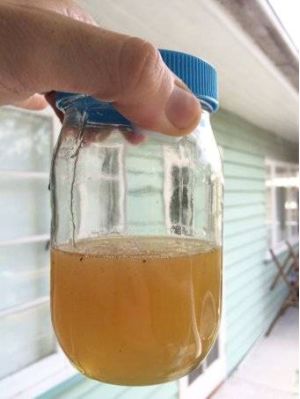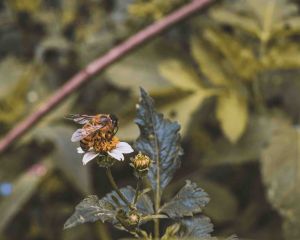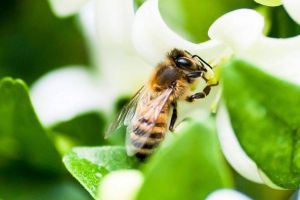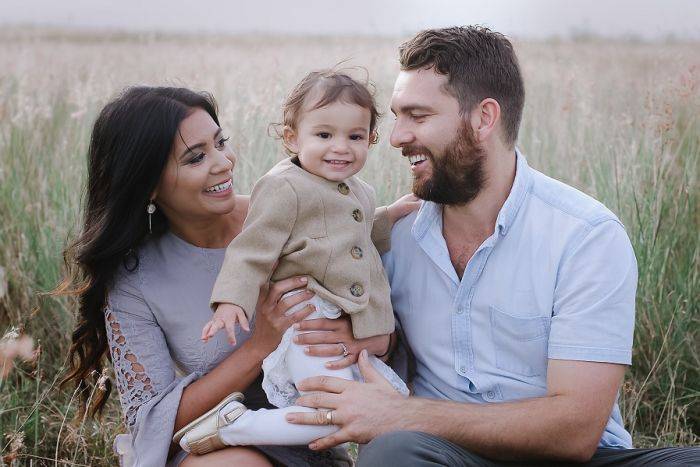A desire to be self-sufficient and ensure a father and husband is home every night is the drive behind one Queensland couple's beekeeping dream.
Mackay-based Janine and Doug Cannon, along with their two-year-old daughter Violet, do not come from an agricultural background, but an unutilised family parcel of rural land got the couple thinking about farming.
Mr Cannon works away at mine sites but when home, he and wife Janine spend much of their time tending to their apiaries and growing their business.
"We looked at all different things from lychees and passionfruit … [something] we could find a niche market in," Mr Cannon said.
That call from Mrs Cannon led the family down the path of honey production.
After plenty of help from others in the industries, the unexpected beekeepers now have two small apiaries near Mackay.
It has been a project in patience, having taken six years of learning and perfecting before the couple sold their first jar of honey in late 2017.
Mrs Cannon said local support for their first batches of raw, chemical-free honey had been overwhelming.
"We thought we would test the local market and see how it went and then focus our efforts elsewhere but we are very happy with the support we have received locally," she said.
"That gave us a really good lift and pushed us to realise what we are doing is good."

(ABC Rural: Lara Webster)
Raw honey production
Their farming philosophy is that the bees come first, so the Cannons have worked to employ minimum stress techniques.
The bees are not moved around for mono-crop pollination and are left on the family property where there is a range of nectar supply.
Once the honey is extracted there is no treating, heating or filtering — it is simply bottled raw.
"What that means is basically having honey as it used to be had," Mr Cannon said.
"We just take it out of the comb, run it through a strainer so it takes out body parts and foreign objects but allows the pollen to go through."
While the couple acknowledged their process was a long one, they said they wanted to honour their commitment to deliver raw honey.
They also experimented with combinations like turmeric honey and chilli honey.
Bee breeding
The last few years had been a steep learning curve for the Cannons and one of the biggest was bee breeding.
In the early stages, Mr Cannon found the bees he bought from Brisbane were not adapting to Mackay's climate.
Now the couple bred their own bees that were conditioned to the environment.
"We do what is called larvae grafting, so we find a colony that has the attributes that we look for: docility, hygienic behaviour, production ability," Mr Cannon said.
The queen bees breed on site with the other bees in the surrounding environment.
"From that, we have got good results of local adaptation, good hygienic behaviour and bees more suited to the environment in Mackay," Mr Cannon said.

(ABC Rural: Lara Webster)
A sustainable business
The Cannon's have continued to test their products on the local market and had plans to expand.
Mr Cannon said wanted to grow a sustainable business for domestic and export markets, and aimed to be at home with his wife and daughter every night.
"The end goal is to be full-time beekeepers, there are a few people that do it well in Mackay but it is not really seen as a profession," Mr Cannon said.
For Mrs Cannon, it is all about the family unit.
However, the prevalence of imported honey worried the couple.
"It does make it very difficult to be a commercial beekeeper and even start a commercial operation," Mr Cannon said.
"With the import of honey, it really devalues our product."
Nevertheless, the Cannons remained optimistic about their future as sustainable and successful commercial beekeepers.
"The bees come first and then hopefully we follow close behind," Mr Cannon said.

(ABC Rural: Lara Webster)





